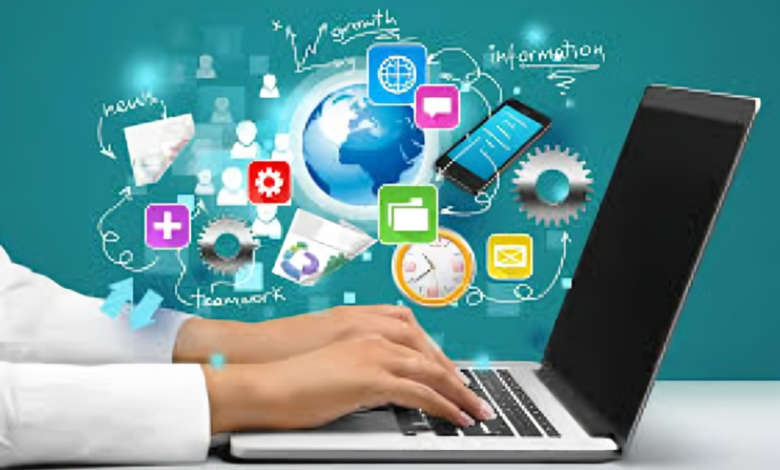Top Technology Trends Shaping the Future in 2025

Technology continues to evolve at a breathtaking pace, reshaping how we live, work, and interact. The year 2025 is set to be no exception, bringing a wave of innovation that promises to redefine industries and transform everyday life. From artificial intelligence to sustainable energy solutions, the technological landscape is brimming with possibilities. In this article, we explore the top technology trends in 2025 that you should watch closely.
1. Artificial Intelligence and Machine Learning Expansion
Artificial Intelligence (AI) and technology Learning (ML) have been driving innovation for years, but their impact is set to deepen in 2025. Industries like healthcare, finance, education, and manufacturing are leveraging AI to improve efficiency and enhance decision-making. AI systems are becoming more intuitive, enabling:
- Personalized Learning: AI-driven tools can create tailored educational content, accommodating diverse learning styles and paces.
- Healthcare Advancements: AI algorithms analyze patient data to provide accurate diagnoses and recommend treatments.
- Automated Workflows: Companies streamline operations through AI-powered automation, reducing human error and increasing productivity.
2. The Rise of Quantum Computing
Quantum computing, once a concept confined to academic research, is entering the mainstream. By leveraging quantum mechanics, these computers solve problems exponentially faster than classical computers. Potential applications include:
- Cryptography: Enhancing data security by developing quantum-resistant encryption methods.
- Drug Discovery: Accelerating the identification of new molecules for medical treatments.
- Climate Modeling: Improving the accuracy of climate predictions and environmental studies.
Companies like IBM, Google, and Microsoft are leading the charge in making quantum computing accessible to businesses and researchers alike.
3. 5G and Beyond
The rollout of 5G networks revolutionized connectivity, but the technology doesn’t stop there. In 2025, expect:
- 6G Research: Early developments in 6G technology promise speeds up to 100 times faster than 5G.
- Enhanced IoT Integration: Faster connections enable smarter cities, homes, and industries, with IoT devices communicating seamlessly.
- Augmented Reality (AR) and Virtual Reality (VR): High-speed networks support immersive AR and VR experiences for entertainment, education, and training.
4. Sustainable Technology Solutions
Environmental concerns are driving the development of sustainable technologies. In 2025, businesses and governments are prioritizing green innovations to combat climate change. Key trends include:
- Renewable Energy Advances: Solar and wind energy technologies become more efficient and cost-effective.
- Green Data Centers: Tech companies adopt energy-efficient cooling systems and renewable power sources.
- Circular Economy Practices: Recycling and repurposing materials in electronics manufacturing reduce waste.
5. The Metaverse: A Virtual Frontier
The metaverse—a virtual universe where people can interact, work, and play—is becoming a central aspect of digital life. By 2025, metaverse technologies will impact:
- Remote Work: Virtual offices and meeting spaces enhance collaboration across distances.
- E-Commerce: Virtual storefronts and interactive shopping experiences redefine online retail.
- Education and Training: Immersive environments simulate real-world scenarios for hands-on learning.
Tech giants like Meta (formerly Facebook), NVIDIA, and Epic Games are heavily investing in metaverse development.
6. Advancements in Biometric Security
Security technologies are evolving to counter sophisticated cyber threats. Biometric authentication, including facial recognition, fingerprint scanning, and voice identification, will see widespread adoption. Applications include:
- Secure Payments: Biometric verification replaces traditional passwords and PINs.
- Access Control: Enhanced security for physical and digital spaces.
- Fraud Prevention: Real-time identification of unauthorized access attempts.
7. Edge Computing Gains Momentum
Edge computing minimizes latency by processing data closer to its source rather than relying on centralized cloud servers. This technology is crucial for:
- IoT Devices: Ensuring real-time responses in smart homes and autonomous vehicles.
- Healthcare: Enabling rapid data analysis in medical devices.
- Content Delivery: Faster streaming and gaming experiences.
8. Robotics and Automation
Robotics is advancing beyond industrial applications, with service robots entering households and commercial spaces. Key trends include:
- Healthcare Robotics: Assisting in surgeries, rehabilitation, and elderly care.
- Agricultural Automation: Robots improve farming efficiency through precision planting and harvesting.
- Retail Robotics: Automated inventory management and customer service.
9. Blockchain Beyond Cryptocurrency
While blockchain is synonymous with cryptocurrencies like Bitcoin, its applications extend far beyond finance. In 2025, expect blockchain to impact:
- Supply Chain Management: Ensuring transparency and traceability in product sourcing.
- Digital Identity: Secure and verifiable online identities for users.
- Smart Contracts: Automating legal agreements and transactions.
10. The Evolution of Wearable Technology
Wearable devices are becoming more sophisticated, blending fashion with function. Innovations in 2025 will include:
- Health Monitoring: Wearables track vital signs, detect anomalies, and share data with healthcare providers.
- Augmented Reality Glasses: Lightweight AR glasses integrate digital information into everyday life.
- Fitness and Wellness: Devices provide real-time feedback to improve physical performance and mental well-being.
11. Space Exploration and Technology
Space technology is reaching new heights, with private companies and governments exploring beyond our planet. Major developments include:
- Commercial Space Travel: Affordable space tourism becomes a reality for more people.
- Satellite Deployment: Advanced satellites support global connectivity and disaster management.
- Lunar and Martian Missions: Ambitious plans for colonizing the Moon and Mars.
12. Human-Centric AI Development
AI ethics and human-centric design are gaining prominence. Developers are prioritizing transparency, fairness, and inclusivity in AI systems. Initiatives include:
- Bias Reduction: Ensuring algorithms produce equitable outcomes across demographics.
- Explainable AI (XAI): Making AI decisions understandable to users.
- Regulatory Frameworks: Governments establish guidelines for responsible AI deployment.
Preparing for a Technological Future
As we step into 2025, these technology trends underscore the transformative power of innovation. Whether you’re a tech enthusiast, business leader, or curious learner, staying informed about these advancements will help you navigate the evolving landscape. The future is being built today—and it’s brimming with opportunities.



